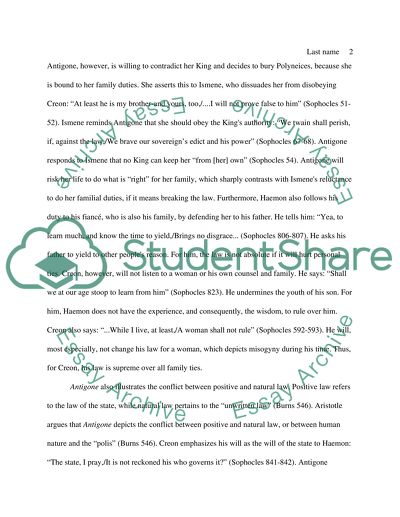Cite this document
(“Moral Conflict in Antigone by Sophocles Essay Example | Topics and Well Written Essays - 1750 words”, n.d.)
Retrieved from https://studentshare.org/english/1438297-moral-conflict-in-antigone-by-sophocles
Retrieved from https://studentshare.org/english/1438297-moral-conflict-in-antigone-by-sophocles
(Moral Conflict in Antigone by Sophocles Essay Example | Topics and Well Written Essays - 1750 Words)
https://studentshare.org/english/1438297-moral-conflict-in-antigone-by-sophocles.
https://studentshare.org/english/1438297-moral-conflict-in-antigone-by-sophocles.
“Moral Conflict in Antigone by Sophocles Essay Example | Topics and Well Written Essays - 1750 Words”, n.d. https://studentshare.org/english/1438297-moral-conflict-in-antigone-by-sophocles.


